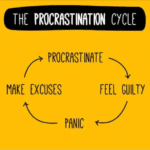The Power of Journaling for Self-Reflection
In the fast-paced world we live in, our thoughts, emotions, and experiences often get lost in the chaos of daily life. Journaling offers a powerful way to slow down, process our feelings, and gain deeper insights into ourselves.
Self-reflection is key to personal growth, and journaling is one of the most effective tools for achieving it. Whether you’re looking to improve your mental health, track your progress, or simply make sense of your emotions, journaling can be a life-changing habit.
In this post, we’ll explore why journaling is so powerful, the benefits it offers, and practical ways to start your self-reflection journal.
Why is Journaling So Powerful?
Journaling allows you to put your thoughts on paper, making them more tangible and easier to process. Instead of letting emotions stay bottled up or racing thoughts overwhelm you, writing them down provides clarity and perspective.
The Science Behind Journaling
Research shows that journaling has significant psychological benefits, including:
✅ Reduced stress & anxiety – Writing about emotions helps process and release them.
✅ Improved emotional regulation – Journaling enhances self-awareness and emotional intelligence.
✅ Boosted problem-solving skills – Seeing your thoughts on paper helps you approach challenges more logically.
✅ Increased mindfulness – It encourages presence and awareness of your thoughts and feelings.
✅ Stronger self-identity – Journaling fosters a deeper understanding of who you are and what truly matters to you.
The Benefits of Journaling for Self-Reflection
1. Helps You Understand Your Emotions
Often, we don’t fully understand our feelings until we express them. Journaling helps bring hidden emotions to the surface, making it easier to navigate them.
🔹 Try This: When feeling overwhelmed, write freely about what’s bothering you. Don’t worry about structure—just let your thoughts flow.
2. Encourages Personal Growth
Self-reflection through journaling allows you to track patterns in your thoughts, behaviors, and emotions. Over time, this insight helps you make positive changes in your life.
🔹 Try This: At the end of each month, review your journal entries. What patterns do you notice? What lessons have you learned?
3. Increases Gratitude and Positivity
Journaling isn’t just for processing difficult emotions—it’s also a powerful tool for cultivating gratitude and focusing on the positive aspects of life.
🔹 Try This: Each day, write down three things you’re grateful for. This simple practice rewires your brain to focus on the good.
4. Strengthens Decision-Making Skills
When faced with a tough decision, journaling helps clarify your thoughts and emotions. Writing about your options and their potential outcomes can guide you toward better choices.
🔹 Try This: When struggling with a decision, write about the pros and cons of each option. Pay attention to how each choice makes you feel.
5. Reduces Stress and Anxiety
Writing down worries can help release them from your mind, reducing stress and anxiety. Seeing your concerns on paper often makes them feel less overwhelming.
🔹 Try This: Before bed, write about anything that’s stressing you out. Then, write down one small action you can take to improve the situation.
How to Start a Self-Reflection Journal
Starting a journal doesn’t have to be complicated. Here are some simple steps to get you going:
1. Choose Your Journaling Method
📖 Physical Journal: A notebook for handwritten entries can feel personal and immersive.
💻 Digital Journal: Apps like Evernote, Notion, or Google Docs provide an easy way to organize thoughts.
📱 Voice Journaling: If you prefer speaking over writing, try recording voice notes.
2. Pick a Journaling Style That Works for You
There are many ways to journal—experiment to find what resonates with you:
📝 Free Writing: Write whatever comes to mind without worrying about structure.
📅 Daily Reflection: Summarize your thoughts, feelings, and experiences each day.
🙏 Gratitude Journaling: Focus on what you’re thankful for.
🎯 Goal Tracking: Record progress toward personal or professional goals.
😌 Mindfulness Journaling: Reflect on how present and aware you were throughout the day.
3. Use Thought-Provoking Prompts
If you’re unsure what to write about, try these self-reflection prompts:
- What are three things I’m proud of today?
- What’s one lesson I learned this week?
- How did I handle stress today? Could I have responded differently?
- What’s a challenge I’m currently facing, and how can I approach it with a growth mindset?
- What are my biggest dreams, and what small steps can I take toward them?
4. Be Consistent, But Flexible
Journaling doesn’t have to be a daily practice to be effective. Start with a few times a week and adjust as needed. The key is to make it a regular habit without feeling like a chore.
5. Keep It Private and Judgment-Free
Your journal is a safe space. Write honestly without worrying about grammar, structure, or what others might think. The goal is self-exploration, not perfection.
Final Thoughts: Journaling is a Journey of Self-Discovery
Journaling is one of the most powerful tools for self-reflection and personal growth. By putting your thoughts on paper, you gain clarity, develop emotional resilience, and strengthen your connection with yourself.



